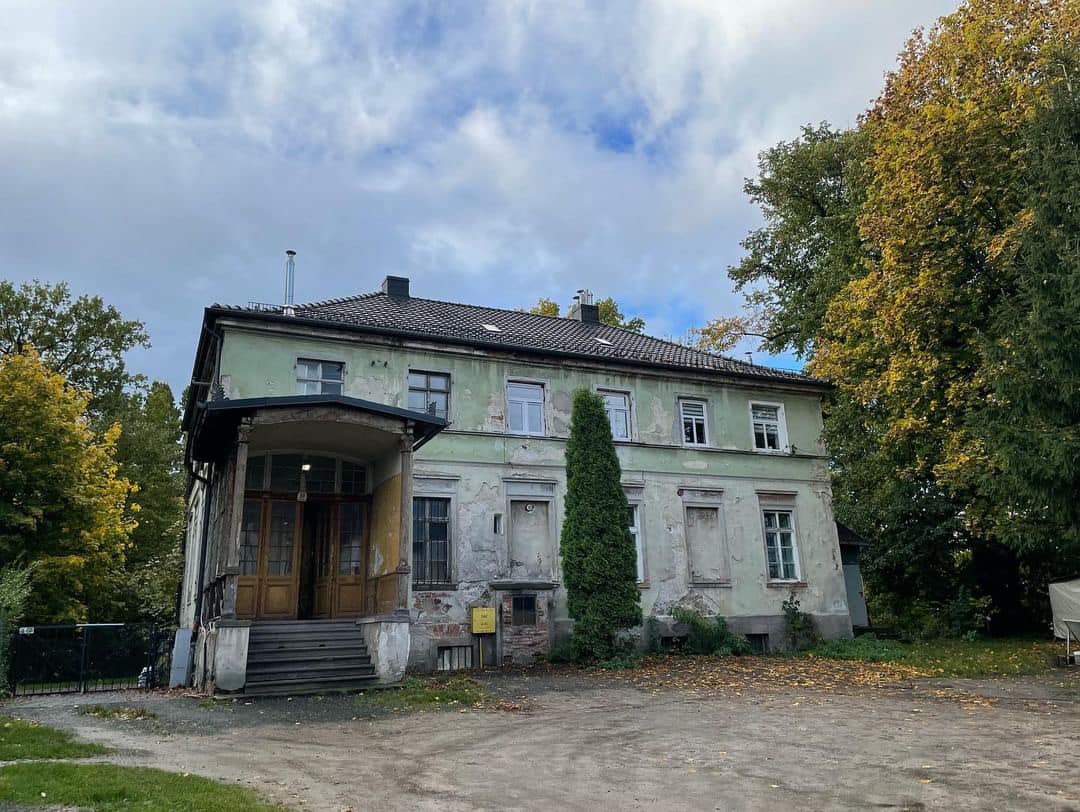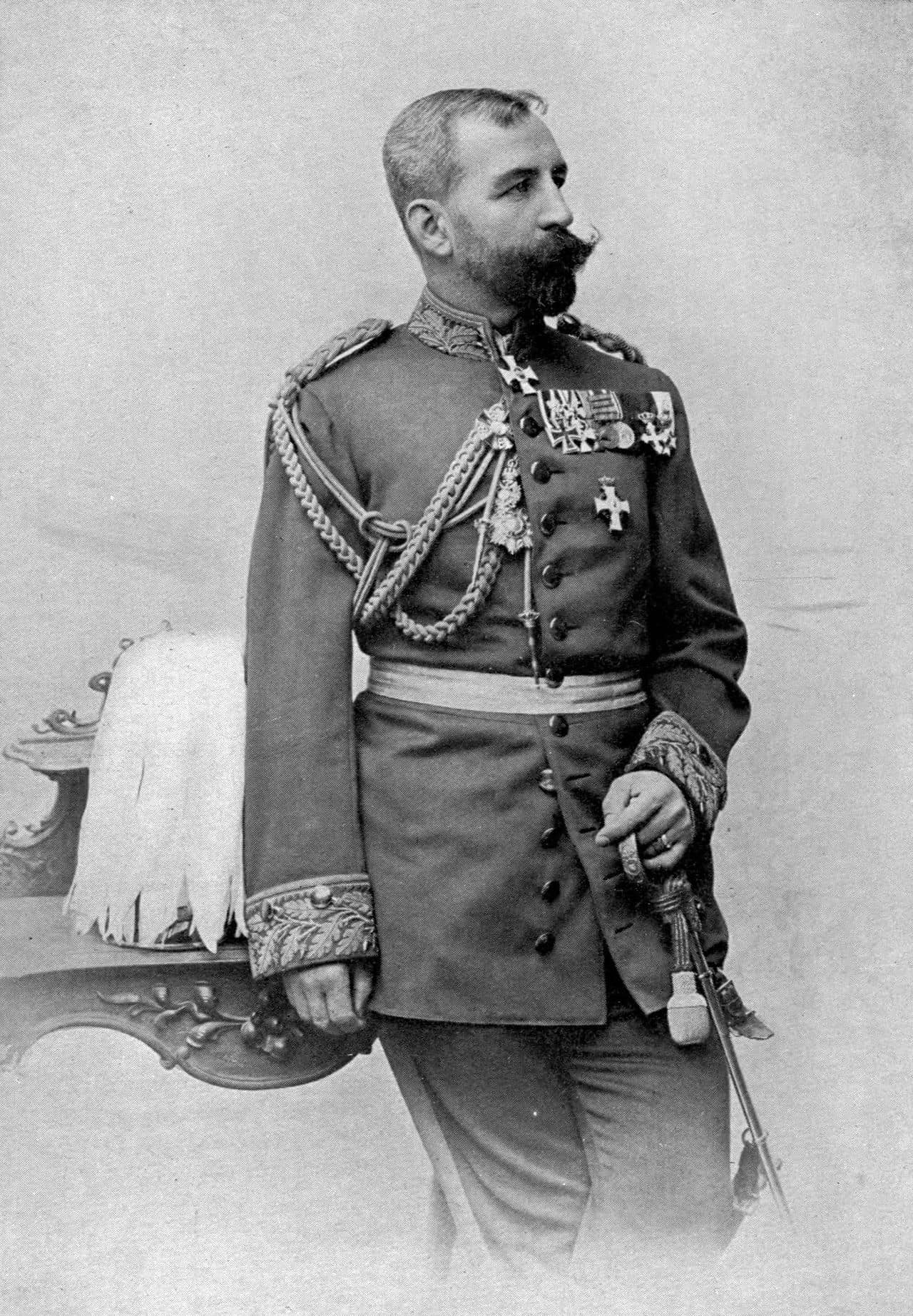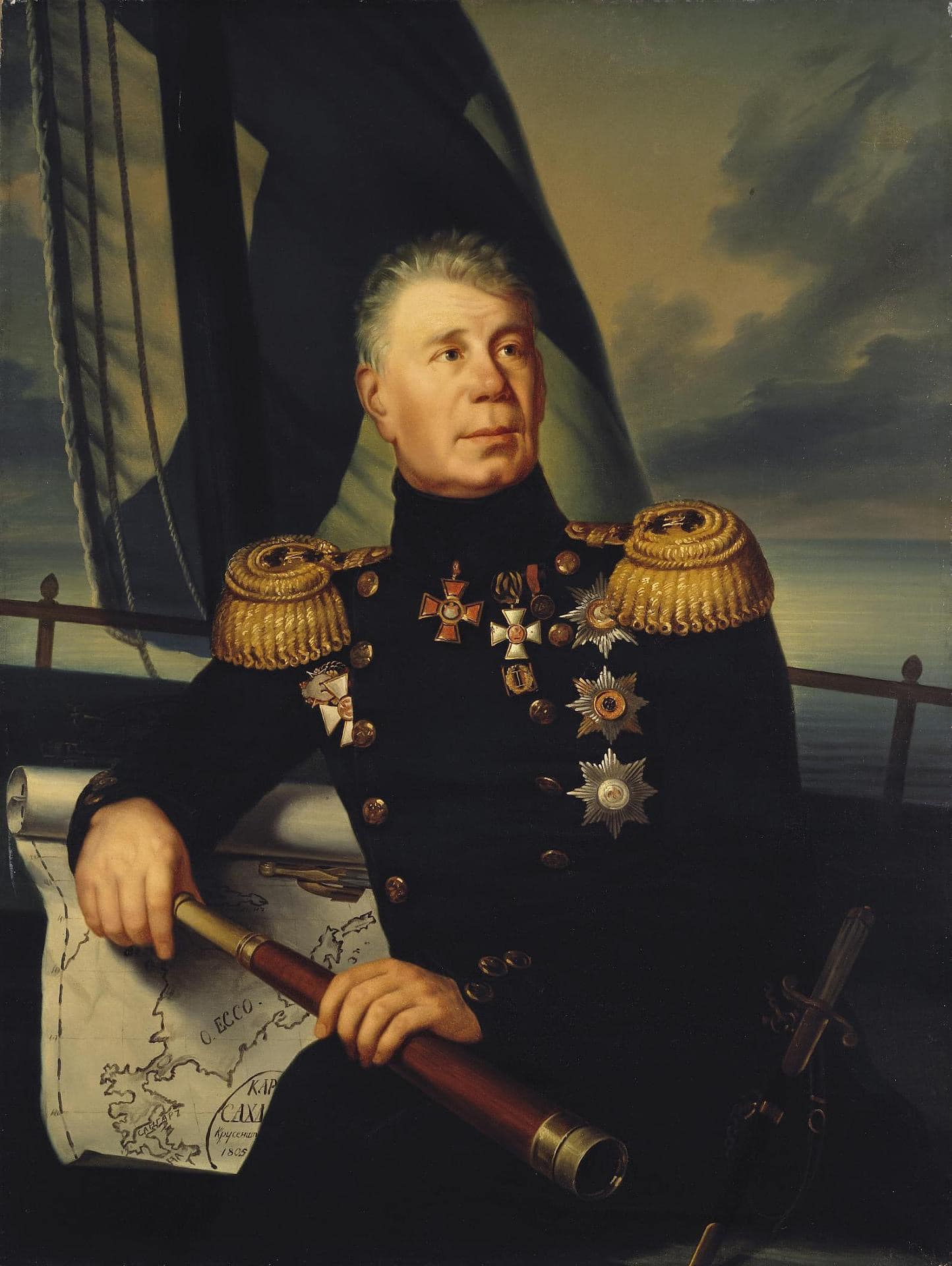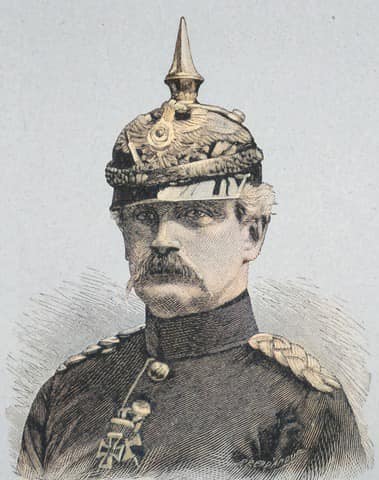
Contemporary view of the villa formerly owned by Friedrich von Bernhardi / Photo by Marta Maćkowiak

Friedrich Adam Julius von Bernhardi

Friedrich’ s grandfather, Adam Johann Ritter von Krusenstern
Contemporary view of the house and photos of preserved historical interior details / Source: private archive

Friedric’s father-in-law, Wilhelm Günther von Colomb
Katharine also passed away first – on April 5, 1929, in her home at Warmbrunnerstrasse 104 (today ul. Tkacka 19), having lived for 75 years. Friedrich, at the age of 80, departed a year later – on July 10, leaving no descendants.
Death certificate of Katharine von Bernhardi (left) and Friedrich von Bernhardi (right) / Source: State Archives in Wrocław, Jelenia Góra branch
Thank you very much to the owners for sharing these beautiful interior photos.
Sources:
Końcowy raport składa się z kopi odnalezionych dokumentów, tłumaczeń, zdjęć oraz podsumowania. Wyjaśniam pokrewieństwo odnalezionych osób, opisuję sprawdzone źródła i kontekst historyczny. Najczęściej poszukiwania dzielone są na parę etapów i opisuję możliwości kontynuacji.
Czasem konkretny dokument może zostać nie odnaleziony z różnych przyczyn – migracji do innych wiosek/miast w dalszych pokoleniach, ochrzczenia w innej parafii, lukach w księgach, zniszczeń dokumentów w pożarach lub w czasie wojen. Cena końcowa w takiej sytuacji nie ulega zmienia, ponieważ wysiłek włożony w poszukiwania jest taki sam bez względu na rezultat.
Raporty mogą się od siebie mniej lub bardziej różnić w zależności od miejsca, z którego rodzina pochodziła (np. dokumenty z zaboru pruskiego, austriackiego i rosyjskiego różnią się od siebie formą i treścią).
Na podstawie zebranych informacji (Twoich i moich) przygotuję plan i wycenę – jeśli ją zaakceptujesz, po otrzymaniu zaliczki rozpoczynam pracę i informuję o przewidywanym czasie ukończenia usługi. Standardowe poszukiwania trwają około 1 miesiąca, a o wszelkich zmianach będę informować Cię na bieżąco.
Na Twoje zapytanie odpiszę w ciągu 3 dni roboczych i jest to etap bezpłatny. Być może zadam parę dodatkowych pytań, dopytam o cele albo od razu przedstawię propozycję kolejnych kroków.
Warto pamiętać, że im więcej szczegółów podasz, tym więcej rzeczy mogę odkryć.
Podziel się ze mną:
I najważniejsze – jeśli masz niewiele informacji, zupełnie się tym nie martw, w takich sytuacjach także znajdę rozwiązanie.